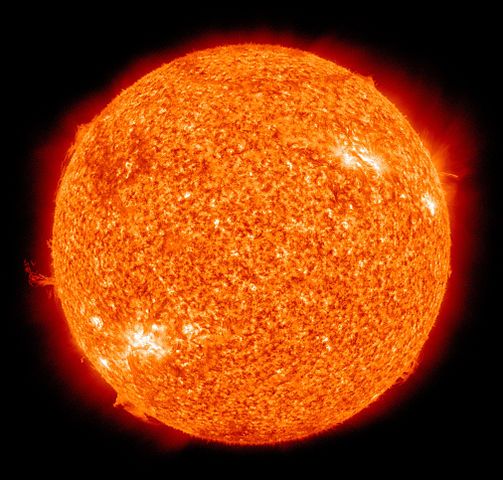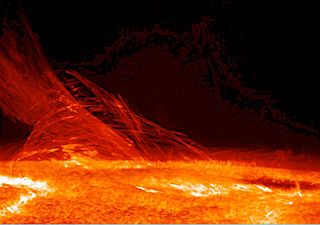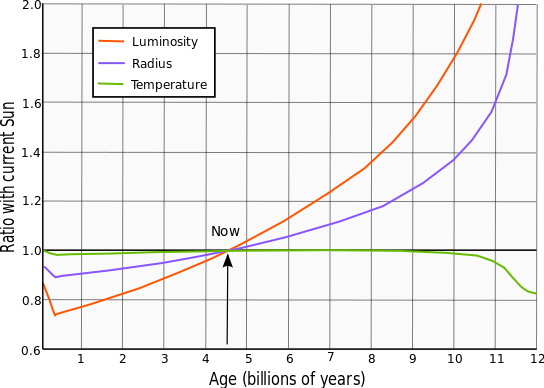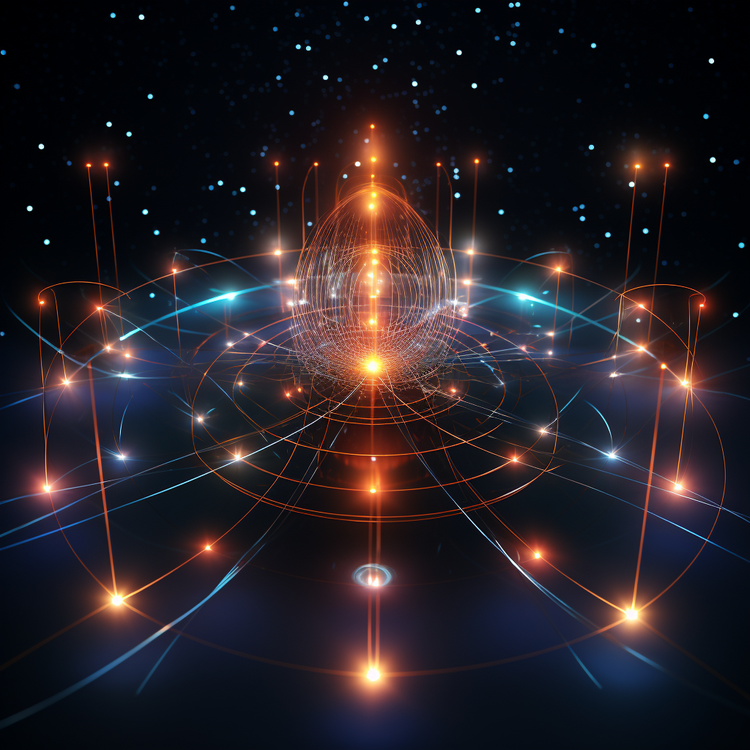6 Reasons Why Everything You Know Will End

As most people know, one day, the sun will reach the end of its life. Fewer know exactly what that means for the Earth.
Every second, about 620 million tons of hydrogen are fused into helium. This process releases massive amounts of energy, which ultimately results in the heating and lighting of our planet. This process has been going on for about 4.6 billion years and will continue for another 5 billion years. At that point, the sun will begin a slow expansion for a few hundred million years. Not long into this expansion, Earth will be completely consumed. That's reason number one that we're toast.

Well, that's all well and good, but will anyone be around to notice?
Not really.
We'll be long gone by that point.
What will happen?
Well, right now about half of the hydrogen in the sun has been converted into helium via fusion reactions.
Since there is less fusible fuel per unit mass, the photonic pressure that opposes the sun's gravity will be reduced. Photonic pressure is what keeps stars from collapsing due to their own gravity.
Light exerts pressure, believe it or not.
Ever heard of solar sails? Yeah, they work.
Anyway, with less photonic pressure, the core of the sun shrinks, which restores the previous equilibrium hydrogen density. This causes hydrogen to be fused faster than before, which causes a higher overall energy production. As a result, the sun will continually grow more luminescent while maintaining a steady temperature. The sun's radius will increase even as the core contracts.

Ok, that's pretty cool, I guess.
What does that mean for us?
Reason number two that we're doomed:
Global warming has nothing on this.
The result is about half a billion years from now, about 95% of plants will be unable to survive due to the increased luminosity causing their photosynthesis process to no longer function correctly.
Naturally, losing 95% of plant life is pretty much going to destroy everything regardless of what comes next.
There's a good chance that many species will adapt, but it won't last long.
Why? Reason number three: A billion years from now, the oceans will have evaporated due to the previously discussed solar situation.
Without water, life as we know it will cease. Some multicellular organisms may survive but the Earth will resemble a desert world with an average surface temperature of 47C. Ouch!
At this point, you're probably thinking that we'll be living in off-world colonies. Humanity eternal! Well, consider this: there is evidence to suggest that the universe is one big oscillation.
Huh?
Reason number four: Remember the Big Bang?
What if that was just one of the untold infinite Big Bangs that we had undergone?
We don't know a lot about dark matter and dark energy but it's entirely possible that these phantom energies will result in the current universal expansion to be reversed.
Oh, you didn't know that our universe has been expanding for at least 14 billion years?
At some point, this expansion may slow and then reverse.
What if dark energy is something else? What if it fundamentally alters some physical constant once the universe has expanded to a certain point? All matter may suddenly disintegrate into elementary particles and radiation once some unknown limit has been reached.
Suddenly everything flies apart as the Strong Nuclear Force no longer binds matter together. Everything disintegrates as magnetism suddenly stops.
Science is strange and scary, huh?
That sums up reason number five that everything is going to end.
More likely, however, is that creation will end not with another Big Bang but with a whimper. Let's look at the final reason for everything coming to an end.
The most popular cosmological theory for the end of all things is that we will experience a complete heat death.
What's that mean?
Well, let's look at the Second Law of Thermodynamics. This law states that the entropy of an isolated system will never decrease. If the universe is an isolated system and the Second Law is obeyed, we'll eventually see the universe as a dark, endless expanse of uniformly distributed elementary particles.
No light, no life, nothing but an endless void with the rare proton floating alone.
Forever.
Pretty dark, eh?
Well, what did you expect when you clicked on this article?





Member discussion